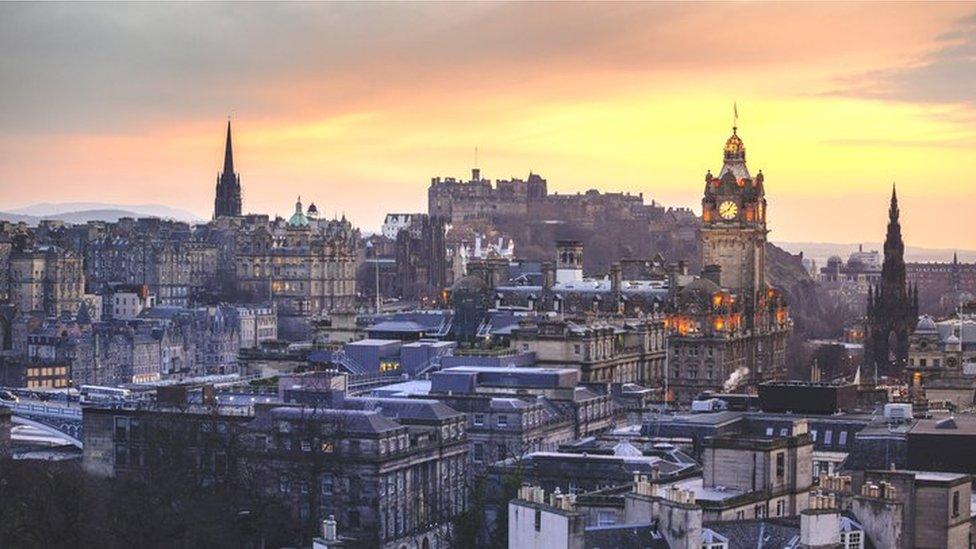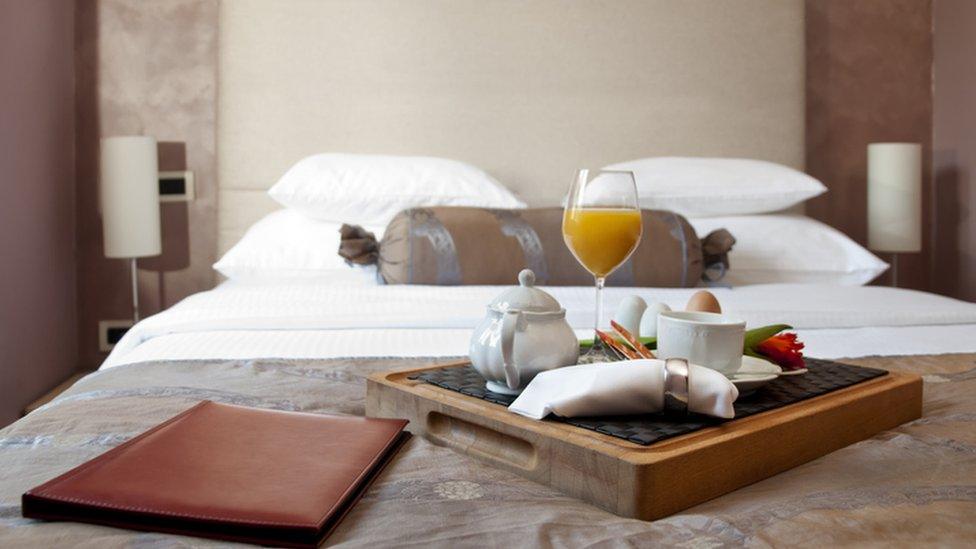Colliers challenges Edinburgh hotels on over-supply claims
- Published

Colliers said Edinburgh remained one of the UK's best performing hotel markets
Property consultancy Colliers International has disputed warnings by Edinburgh hoteliers that the capital is suffering from an over-supply of rooms.
The Edinburgh Hotels Association (EHA) reported recently, external that growth in hotel numbers and short-term letting sites such as Airbnb were having a "negative impact" on occupancy and room rates.
It argued over-supply had left some businesses in a "fragile state".
But Colliers said the city was one of the UK's best performing hotel markets.
Research by Colliers, which acts as a broker and adviser on hotel developments, found that there was a slight decrease in occupancy and average room price in the city last year.
However, its analysis showed that total revenue rose by £30m in 2019 to reach £505.7m, as the number of rooms in supply grew by more than 1,400 to 16,579.
According to Colliers, occupancy in Edinburgh last year was 1.6% higher than the 80.4% achieved in 2014, while the average room rate rose over the same period from £86.32 to £101.92. The number of rooms in supply was also up by 37% on 2014.

Marc Finney, head of hotels and resorts consulting at Colliers, said that while there had been a raft of new hotel openings in the Scottish capital in recent years, this had "simply allowed the sector to start to fulfil its true potential".
He added: "The fact the Edinburgh market generated £30m more from hotel accommodation revenue in 2019 compared to 2018, against a negative economic backdrop, is a strong result.
"There seems to have been an awful lot of talk recently about how the Edinburgh market is over-supplied and how Scotland is a victim of over-tourism.
"I believe they (EHA) should be rejoicing at the success of the Edinburgh market against a difficult backdrop and perhaps be a little more welcoming to their new potential members."
Edinburgh 'unique'
Reacting to the findings, EHA - which represents more than 50 providers in the city - said demand was not growing sufficiently to match recent increases in the number of hotels and Airbnb accommodation in Edinburgh.
It also pointed out that 2,500 new hotel rooms were in the pipeline in the capital.
EHA spokesman Russell Imrie said: "Edinburgh is unique in that demand fluctuates hugely from peak months to low months.
"To provide the number of hotel and Airbnb bed spaces to satisfy peak demand can only mean a reduction in hotel yield in periods of low demand.
"EHA accepts that Edinburgh is an attractive destination for hotel development, however it cannot remain so if bed space supply continues to increase at a rate that outstrips demand."